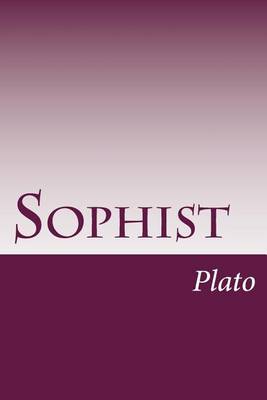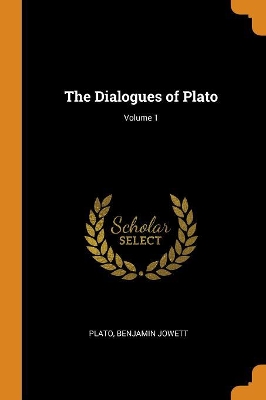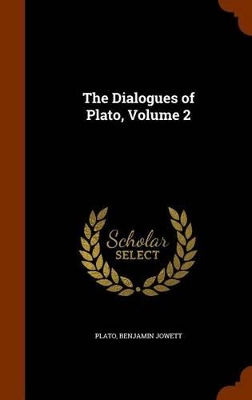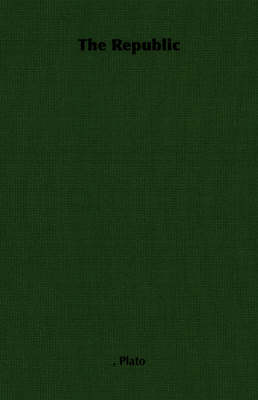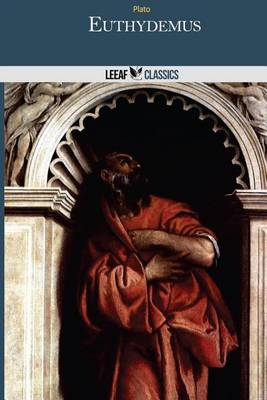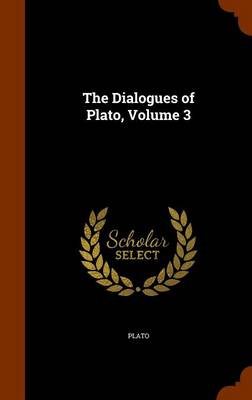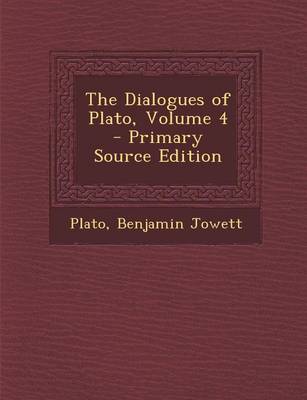Dialogues of Plato
22 primary works • 28 total works
Book 24
Seth Benardete is one of the very few contemporary classicists who combine the highest philological competence with a subtlety and taste that approximate that of the ancients. At the same time, he as set himself the entirely modern hermeneutical task of uncovering what the ancients preferred to keep veiled, of making explicit what they indicated, and hence...of showing the naked ugliness of artificial beauty.--Stanley Rose, Graduate Faculty Philosophy Journal
Seth Benardete (1930-2001) was professor of classics at New York University. He was the author or translator of many books, most recently The Argument of the Action, Plato's Laws, and Plato's Symposium, all published by the University of Chicago Press.
Book 25
Seth Benardete is one of the very few contemporary classicists who combine the highest philological competence with a subtlety and taste that approximate that of the ancients. At the same time, he as set himself the entirely modern hermeneutical task of uncovering what the ancients preferred to keep veiled, of making explicit what they indicated, and hence...of showing the naked ugliness of artificial beauty.--Stanley Rose, Graduate Faculty Philosophy Journal
Seth Benardete (1930-2001) was professor of classics at New York University. He was the author or translator of many books, most recently The Argument of the Action, Plato's Laws, and Plato's Symposium, all published by the University of Chicago Press.
"Will probably become the standard English version of the complete dialogues."-Anthony C. Daly, S.J., Modern Schoolman
This initial volume in a series of new translations of Plato's works includes a general introduction and interpretive comments for the dialogues translated: the Euthyphro, Apology, Crito, Meno, Gorgias, and Menexenus.
"Allen's work is very impressive. The translations are readable, lucid, and highly accurate. The general introduction is succinct and extremely clear. The discussion of the dating of the dialogues is enormously useful; there has previously been no brief account of these issues to which one could refer the student. Finally, the particular introductions are first rate: fine jobs of clear philosophical and historical explanation-succinct and yet sophisticated, both close to the text and philosophically incisive."-Martha Nussbaum, Brown University
"This is an important work that deserves our respect and attention."-Ethics
"Allen is a superb translator, whose elegantly simple yet precise language gives access to Plato both as a philosopher and as a literary artist."-Library Journal
R. E. Allen's superb new translation of Plato's Symposium brings this classic text to life for modern readers. Allen supplements his translation with a commentary that not only enriches our understanding of Plato's philosophy and the world of Greek antiquity but also provides insights into present-day philosophical concerns.
Allen reveals the unity of Plato's intentions in the Symposium, explores the dialogue's major themes, and links them with Plato's other dialogues. His wide-ranging commentary includes discussions of Greek religious, social, and sexual practices, the conceptual connections between the Symposium and Freud, the influence of the Symposium on later writers, and recent scholarship on the dialogue. Allen's primary focus is philosophical, however, and he succeeds in explicating the doctrine of Eros in Plato's Symposium so that the reader can see how wish and desire relate to Plato's moral philosophy, epistemology, and metaphysics.
In his detailed commentary, Allen closely examines the major themes and central arguments of each dialogue, with particular emphasis on Protagoras. He clarifies each of Plato's arguments and its refutation; places the themes in historical perspective; ties each theme to interpretations of rival translations; and links the philosopher's thought to trends in late modern philosophy. Topics discussed include: whether virtue is an art, whether wisdom and courage are logically equivalent, whether virtue is knowledge, and whether to know the good is to do it. Allen connects his discussion of these issues to the Benthamite tradition of hedonism and utilitarianism and to the ethical theories of Mill, Sidgwick, Moore, and Freud.
In this book, R.E. Allen provides a superb translation of the Parmenides along with a structural analysis that procedes on the assumption that formal elements, logical and dramatic, are important to its interpretation and that the argument of the Parmenides is aporetic, a statement of metaphysical perplexities. Allen's original translation of and commentary on the Parmenides were published in 1983 to great acclaim and have now been revised by the author.
